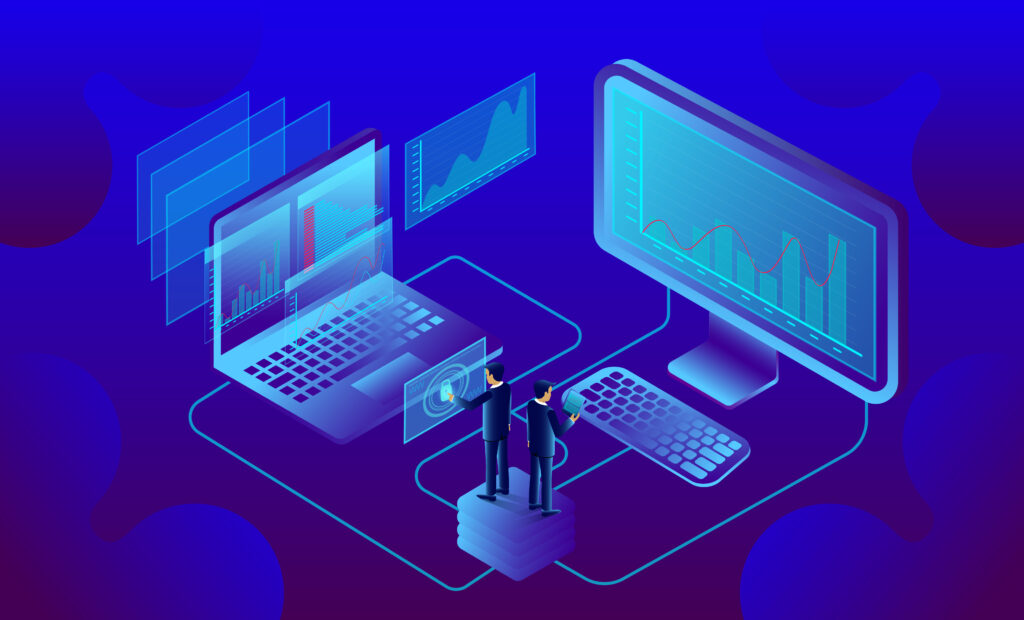Managed services have become an increasingly important part of businesses’ IT infrastructures. These services allow companies to outsource IT management and support to third-party providers, giving them more time to focus on their core objectives.
Like other technology-related industries, managed services are constantly changing and evolving. In this blog post, we’ll discuss some of the latest trends in managed services and what they mean for businesses that decide to implement these solutions.

7 Trends in Managed Services
- Outsourcing
Most big organizations have concluded that an in-house digital transformation team can’t function independently. It’s expensive to stay up to date with the disruptions in the digital industry, which are only worsening. Additionally, many small businesses can’t make investments on the same level as the in-house support services in larger companies.
As a result, outsourcing has become one of the growing trends in managed services. Managed service providers (MSPs) can use outsourcing to take up a significant portion of the market.
- IoT and Blockchain
IoT and blockchain are two of the most revolutionary technologies in the IT sector now, and therefore, one of the emerging trends in managed services. While blockchain is a distributed ledger that provides a decentralized and highly scalable environment for IoT devices, platforms, and applications, IoT connects devices over a network, enabling devices to interact with each other without human intervention.
Using blockchain technology, the communication between two devices can be specified, and the state of these devices can be monitored. Combining the two provides IoT devices with enhanced security (addressing one of the main issues with this technology currently) and adds much-needed transparency to IoT ecosystems.
Applications like smart contracts, which are based on blockchain technology and executed when certain conditions are met, can improve IoT compliance while also significantly enhancing IoT features and the technology’s cost-effectiveness. MSPs with expertise in IoT and blockchain can help businesses implement these technologies and stay competitive in the market.
- Cloud
All areas of the IT sector have been impacted by the cloud computing industry. It’s growing in popularity day by day as even the smallest businesses aspire to be globally recognized. Furthermore, the cloud is the only way to provide managed services from anywhere.
Cloud technology is already being utilized to build new platforms to accelerate digital transformation and benefit organizations in many ways. However, due to a lack of available talent and weak internal infrastructure, most businesses are unable to move their operations to cloud platforms. Managed Service Providers can help companies efficiently use this technology in their operations at a competitive price.
- Automation
The adoption of automation is happening at the same rate as cloud computing and outsourcing. Automation is transforming the IT sector by helping businesses reduce repetitive and mundane tasks like data migration between systems.
IT teams are becoming more effective thanks to straightforward rule-based automated processes. This saves up labor for other important tasks and reduces human error and resolution time. MSPs with experience in automation can significantly improve business operations within organizations (such as HR, finance, and marketing) and increase revenue.
- Enhanced Security
Companies must secure their IT infrastructure considering the continuous increase in cyberattacks. They must accurately identify the touchpoints with the greatest potential for a breach, create solutions to secure them, implement those solutions, and then continuously monitor them for leakage.
A company needs to have the right skill set to apply these security measures and build up a backup plan. Unfortunately, most small-to-medium-sized businesses face a big challenge: a limited IT budget, which prevents them from implementing the necessary security measures for their infrastructure.
Organizations receive help from managed security service providers who secure their infrastructure. Additionally, managed security services continuously monitor, improve security protocols and regulations, defend, and help businesses recover quickly from cyberattacks.
- Data-Driven Customer Service
Although data can help automation greatly by ensuring the best results, the same data is also essential in making other significant improvements.
Representatives in the customer care industry can learn about current problems. In general, the process of waiting for such data to be given to a third party is no longer necessary. When this information is available, the team can come up with the finest strategies for communicating with customers and clients before issues arise.
Data can also be used by different departments within an organization to perform certain operations.
- Hyper-Converged Infrastructure
Hyper-converged infrastructure unifies a company’s infrastructure and runs on pre-made commercial services. To provide a single, ready-to-use system, it combines computing, networking, and storage. This allows the company to expand faster toward digital transformation.
On a fundamental level, a hyper-converged infrastructure consists of virtual networking, virtual computing, and virtual SAB. However, setting up this infrastructure is a complex process that needs caution and expertise.
An organization can get help installing a hyper-converged infrastructure from a managed service provider (MSP). They can create and install a single infrastructure that streamlines their business operations thanks to the expertise of their staff, which comprehends the company’s present and future needs.

Ready to take advantage of the latest trends in managed services? Contact us today to find out how our IT outsourcing services can help your business grow and stay competitive!
- AI in IoT: Benefits, Components, and Impact - April 10, 2025
- AI and Low-Code/No-Code: A New Era of Development and Innovation - February 25, 2025
- The Ultimate Guide to AI in IT Support: The Tools, Benefits & Challenges You Must Know - February 11, 2025
